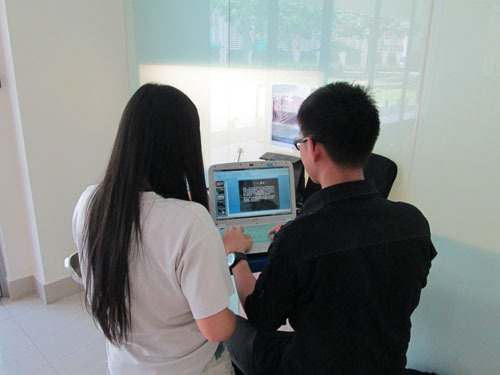
“בתי ספר מונעים לשים דגש רב מדי על ציוני מבחנים אשר לוכדים את מה שניתן למדוד בקלות. בעצם עשיתו, הם מזניחים כישורים ותכונות חשובות אחרות שקשה לכמת.” — אנדי הארגריבס
דו"ח חדש, שיפור מונעי נתונים ואחריות, נכתב על ידי הפרופסורים של מכללת בוסטון אנדי הארגריבס והנרי בראון, offers recommendations for establishing more effective systems and processes for evaluating performance of schools. The report explains how the current system of student data collection more often than not creates “perverse incentives” for educators to narrow curriculum, teach to the test and allocate their efforts disproportionately to students who yield the quickest test-score gains, rather than those with the greatest needs. The authors claim the flawed use of data-driven improvement and accountability (“DDIA”) in much of U.S. Education has significant ramifications, since the system has become “driven” לעומת “guided” by test scores. In these circumstances, educational accountability that is intended to contribute to student improvement can actually impede improvement for students.
“When accountability is prioritized over improvement, DDIA neither helps educators make better pedagogical judgments nor enhances educators’ knowledge of, and relationships with their students,” comments Braun. “בתי ספר מונעים לשים דגש רב מדי על ציוני מבחנים אשר לוכדים את מה שניתן למדוד בקלות. בעצם עשיתו, they neglect other important skills and qualities that are difficult to quantify,” adds Hargreaves.
The drive to enhance school performance and learning outcomes for all students has been an educational priority for the last three decades, often creating conflicts between policymakers and educators. There has been major debate over the emphasis on test scores. Hargreaves and Braun argue that our thinking is too narrow. They raise the question: Are we using this data as effectively as we could or has it become a substitute for professional judgment? They contend that data should guide educators in terms of providing feedback, allowing schools to see the problem areas, and intervene and make the necessary student and/or teaching improvements as needed. בנוסף, does this data alone properly reflect what students know? Does it measure all that we value?
וכך, what would be the alternatives to the policy tools we currently rely on for school performance? Hargreaves and Braun point out that professional judgments and interventions would need to be based on a wide range of evidence and indicators that properly reflect what students should be learning. They draw comparisons with uses of data in business and professional sports, e.g. the Oakland Athletics, the first baseball team to rely on players’ performance statistics for recruitment. “The point being,” adds Hargreaves, “effective teams use data but the data are valued by everyone, and analyzed together with shared responsibility for improvement.” בנוסף, high performing educational systems around the world use systemic reforms to promote collective responsibility for improvement. Top down accountability is a last resort in these countries.
Accompanying the report is model legislation authored by attorney Kathy Gebhardt, executive director of Children’s Voices. Based on the Hargreaves and Braun brief, the legislation details how data could be used effectively to create a multi-level system of accountability designed for school improvement.
הארגריבס’ and Braun’s brief concludes with twelve recommendations for establishing more effective systems and processes of Data-Driven or Evidence-Informed Improvements and Accountability.
To review the Hargreaves/Braun report: http://nepc.colorado.edu/publication/data-driven-improvement-accountability
Andrew Hargreaves is the Thomas More Brennan Professor of Education in the Lynch School of Education. Henry Braun is the Boisi Professor or Education and Public Policy in the Lynch School of Education.

אנדי הארגריבס, C. M. רובין, הנרי בראון
Photos courtesy of Andrew Hargreaves and Henry Braun.
בגלובל החיפוש לחינוך, להצטרף אליי ולמנהיגי מחשבה מוכרת בעולם כולל סר מייקל ברבר (בריטניה), DR. מיכאל בלוק (ארה"ב), DR. ליאון בוטשטיין (ארה"ב), פרופסור קליי כריסטנסן (ארה"ב), DR. לינדה דרלינג-Hammond (ארה"ב), DR. Madhav אוון (הודו), פרופ 'מיכאל Fullan (קנדה), פרופ 'הווארד גרדנר (ארה"ב), פרופ 'אנדי הארגריבס (ארה"ב), פרופ 'איבון הלמן (הולנד), פרופ 'קריסטין Helstad (נורווגיה), ז'אן הנדריקסון (ארה"ב), פרופ 'רוז Hipkins (ניו זילנד), פרופ 'קורנליה הוגלנד (קנדה), הכבוד ג'ף ג'ונסון (קנדה), גברת. שנטל קאופמן (בלגיה), DR. Eija Kauppinen (פינלנד), מזכיר המדינה Tapio Kosunen (פינלנד), פרופ 'דומיניק לפונטיין (בלגיה), פרופ 'יו לאודר (בריטניה), פרופ 'בן לוין (קנדה), לורד קן מקדונלד (בריטניה), פרופ 'בארי McGaw (אוסטרליה), שיב נדאר (הודו), פרופ 'R. נטריגין (הודו), DR. PAK NG (סינגפור), DR. דניז אפיפיור (ארה"ב), שרידהר ךאג'גופלן (הודו), DR. דיאן ראוויטש (ארה"ב), ריצ'רד וילסון ריילי (ארה"ב), סר קן רובינסון (בריטניה), פרופ Pasi Sahlberg (פינלנד), פרופ Manabu סאטו (יפן), אנדריאס שלייכר (PISA, OECD), DR. אנתוני סלדון (בריטניה), DR. דוד שפר (ארה"ב), DR. קירסטן Immersive Are (נורווגיה), קנצלר סטיבן ספאן (ארה"ב), איב Theze (Lycee Francais ארה"ב), פרופ 'צ'רלס Ungerleider (קנדה), פרופ 'טוני וגנר (ארה"ב), סר דייוויד ווטסון (בריטניה), פרופסור דילן Wiliam (בריטניה), DR. מארק Wormald (בריטניה), פרופ 'תיאו Wubbels (הולנד), פרופ 'מייקל יאנג (בריטניה), ופרופ 'Minxuan ג'אנג (סין) כפי שהם לחקור שאלות חינוך תמונה הגדולות שכל המדינות מתמודדות היום. גלובל החיפוש לחינוך עמוד קהילה
C. M. רובין הוא המחבר שתי סדרות מקוונות רבים קוראות שלהיא קיבלה 2011 הפרס אפטון סינקלר, “גלובל החיפוש לחינוך” ו “איך וויל אנחנו קראו?” היא גם מחברם של שלושה ספרים רבי מכר, כולל אליס בארץ הפלאות Real.
עקוב C. M. רובין בטוויטר: www.twitter.com/@cmrubinworld






תגובות אחרונות